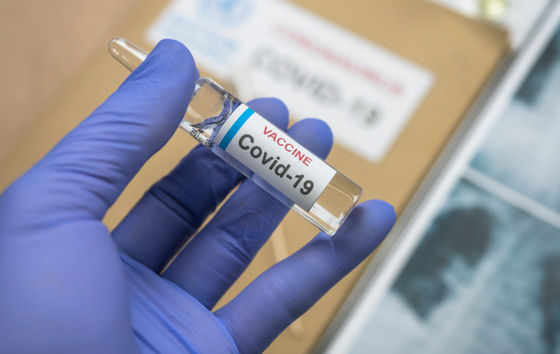Pfizer's new corona vaccine is reported to be a 'logistics nightmare,' and why?

The new coronavirus vaccine ' BNT162b2 ' under development by the American pharmaceutical giant Pfizer was announced on November 9, 2020 as 'a preventive effect of over 90% was seen in clinical trials', so it is a countermeasure against the new corona. It is seen as promising. However, in order to deliver this vaccine to many people, it is essential to have special equipment and systems in place, so the American news media CBS News reports that it is 'a nightmare for logistics.'
Pfizer's COVID-19 vaccine distribution will be a 'logistical nightmare' --CBS News
https://www.cbsnews.com/news/covid-vaccine-pfizer-distribution-logistical-nightmare/
The new coronavirus vaccine 'BNT162b2' developed by Pfizer in collaboration with biotechnology company BioNTech has been shown to have 'more than 90% protective effect' in Phase III trials conducted in the United States, South America, South Africa, etc. I'm suddenly getting high expectations.
Pfizer announces that 'new corona vaccine with more than 90% preventive effect' has been developed --GIGAZINE

Meanwhile, a problem in logistics that has suddenly emerged is that 'BNT162b2 needs to be stored at an ultra-low temperature of minus 70 degrees Celsius.' This issue raises concerns among experts that 'there is an absolute shortage of trucks and freighters that support ultra-low temperature storage to deliver vaccines to people below freezing.'
To address these concerns, Pfizer has developed a special case that allows the vaccine to be shipped in a completely sealed package with dry ice so that the BNT162b2 can be transported even on non-cooling trucks. But even if this solves the immediate problem, CBS News points out that even if this solves the immediate problem, it still poses a major challenge for healthcare organizations that actually have to vaccinate hundreds of millions of people.
Experts have pointed out the following six problems associated with vaccine transportation.
・ Pfizer's special case can only be opened twice a day for up to 3 minutes each time.
・ Even if the above temperature maintenance standards are observed, the effective temperature can be maintained for only 10 days. If the transportation takes four days, the medical institution has only six days to spare.
-Dry ice packed in a special case is considered ' dangerous goods ', so transportation by air is restricted.
-The shipping container developed by Pfizer separately from the case can be replenished with dry ice, but it costs hundreds of dollars (about tens of thousands of yen) to replenish because it must be a specially shaped dry ice. It takes. Even so, the validity period is extended by only 5 days.
・ If hospitals have introduced ultra-low temperature freezers, vaccines can be stored for up to 6 months, but few medical institutions have such freezers. There is also a shortage of ultra-low temperature freezers.
・ BNT162b2 needs to be vaccinated twice every 21 days, so complicated procedures must be taken to obtain sufficient vaccination.

A Pfizer spokeswoman told CBS News that 'we are developing transportation plans and tools to support effective vaccine transportation and storage and continuous temperature monitoring.' However, he refused to present a detailed vaccine distribution plan.
Emily Gerbers, Head of Business Development at MD Logistics, which specializes in refrigerated supply chains, said, 'We have to transport not only vaccines, but also therapeutics and antibodies. The supply chain grows and adapts during pandemics. However, it is still difficult for the refrigerated supply chain industry to meet these demands. '
Instead of delivering the vaccine directly to a medical institution, the idea of storing it in a centralized freezer is also being considered. However, according to JLL, a commercial real estate service provider, refrigeration facilities that can store BNT162b2 cover only 2% of the total transportation market. In addition, little attention has been paid to this field until recently, so no investment has been made, and many existing refrigeration facilities have vacancy rates of less than 5%.
JLL's Mehtab Randhawa told CBS News that 'the pandemic has disrupted the supply and demand of refrigerated supply chains. In addition, Pfizer vaccines require very specific low temperature requirements and are already in the public eye. Do not match. '
Soumi Saha, a pharmacist at Premier, a purchasing agency for medical institutions, said, 'The issue of vaccine transportation is a logistics nightmare, especially for rural areas. No one has any experience in dealing with such issues. No, so the industry needs to work together to properly manage and distribute vaccines. '

Related Posts:
in Note, Posted by log1l_ks







